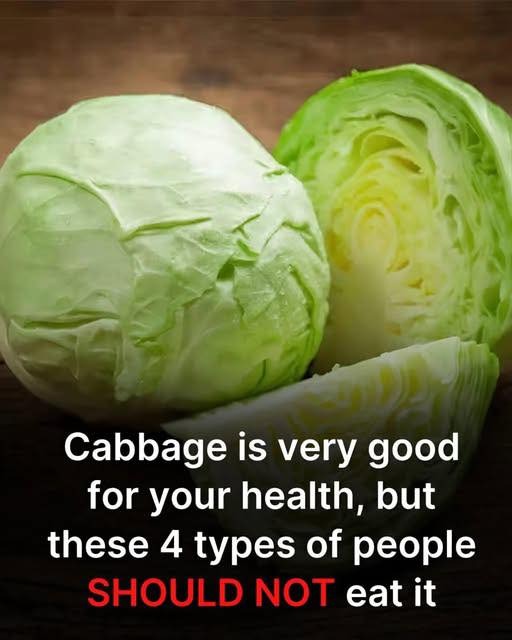Let’s break down who should think twice before reaching for that second helping of cabbage soup.
1. People with Thyroid Issues: How Cabbage Can Interfere
If you’ve been diagnosed with thyroid problems like hypothyroidism or goiter, cabbage might be working against you without you realizing it.
Cabbage contains a substance called goitrin, which can disrupt the thyroid’s ability to produce hormones. Over time, this interference may cause the thyroid gland to swell—leading to complications that especially affect older adults, such as fatigue, weight gain, and cold sensitivity.
But that doesn’t mean you have to give it up completely.
Here’s a tip: Soaking cabbage in salted water for about 10–15 minutes before cooking can help reduce its goitrin content. Finely chopping or steaming it can also help neutralize its effects.
Still, it’s best to talk with your doctor or endocrinologist before making cabbage a regular part of your diet if your thyroid is already under strain.
2. People with Digestive Disorders: When Fiber Does More Harm Than Good
Cabbage is rich in fiber, which is typically a good thing—especially for regularity and gut health.
But for people with sensitive digestive systems, irritable bowel syndrome (IBS), chronic diarrhea, or frequent bloating, cabbage can act more like a trigger than a helper.
Its natural sugars and high fiber content can lead to gas, cramping, and discomfort. For seniors already dealing with slower digestion or a finicky stomach, that’s a recipe for distress.
If this sounds like you, gentler vegetables like steamed carrots, peeled zucchini, or mashed sweet potatoes might be better options. They’re softer on the system and still give you essential vitamins without the upset.
3. People with Histamine Sensitivities or Eye Allergies
This one may come as a surprise: Cabbage, especially when fermented or pickled (think sauerkraut or kimchi), can provoke allergic reactions in sensitive individuals.
That’s because cabbage naturally contains histamines—compounds that can trigger responses like itching, sneezing, watery eyes, or in some rare cases, even eye bleeding (known as subconjunctival hemorrhaging) in extremely sensitive people.
If you’ve ever had seasonal allergies, unexplained eye irritation, or food sensitivities, cabbage could quietly be contributing to the problem.
Symptoms might not show up right away but can worsen with regular exposure, especially to fermented cabbage products.
If you’ve experienced odd allergy symptoms after meals, it may be worth tracking whether cabbage or sauerkraut is involved—and asking your doctor about histamine intolerance.
4. People with Kidney Problems: Why Oxalic Acid Is a Concern
see next page
ADVERTISEMENT

